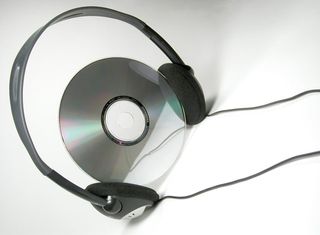Coworkers Judged by iTunes Playlists

Office workers who share music via Apple Computer's iTunes software track their coworkers' comings and goings and form opinions about them based on their playlists.
The opinions are not always what the sharer intended, a new study finds.
The sharing phenomenon can nonetheless create a community of sorts among coworkers who otherwise barely know each other.
The study, of an unnamed mid-sized U.S. company, was funded in part by the National Institute of Standards and Technology (NIST).
"People sharing music in our study were aware of the comings and goings of others in the office because they noticed the appearance and disappearance of others' music on the network," said Amy Voida, a Ph.D. student at Georgia Tech who led the research. "They imagined what other people might think about their music collections, and they were aware of the musical holes left when someone left the company."
Employees used their music libraries to consciously portray an self-image.
"I just went through it to see if there was not like stuff that would be like, I don't know, annoying, that I would not like people to know that I had," said one worker who, believing his music library to be "not very cool," added other tunes in an effort to create a balanced portrayal of himself.
Sign up for the Live Science daily newsletter now
Get the world’s most fascinating discoveries delivered straight to your inbox.
One guy worried what his colleagues might think of the Justin Timberlake and Michael McDonald music that was in his library but which he'd bought for his wife.
Big Brother got in on the game, too. The music files reside on each employees computer and, when shared with people who sign up, are streamed to other members' computers across a local area network. A manager joined one music-sharing group.
"When the manager showed up and could start looking through people's music collections, people began to speculate that the manager's presence might be influencing the way others were managing what music they shared," said Beki Grinter, a Georgia Tech associate professor of computing.
Other findings:
- People sometimes claim to listen to others' libraries when in fact they aren't interested and don't listen.
- Some people think their own libraries are unique, while coworkers might view them as just like many others.
Lastly, nobody likes an anonymous deejay.
"Most people didn't want to listen to anonymous collections, even though they didn't always want to talk to the playlists' creators," Grinter said. "They went to quite a bit of trouble to figure out which playlists belonged to whom. It's a peculiar social phenomenon. They don't want to live in a completely anonymous world, especially in the workplace."
The Palo Alto Research Center (PARC) participated in the study, which will be presented Tuesday at the Computer-Human Interaction conference in Portland, Ore.

